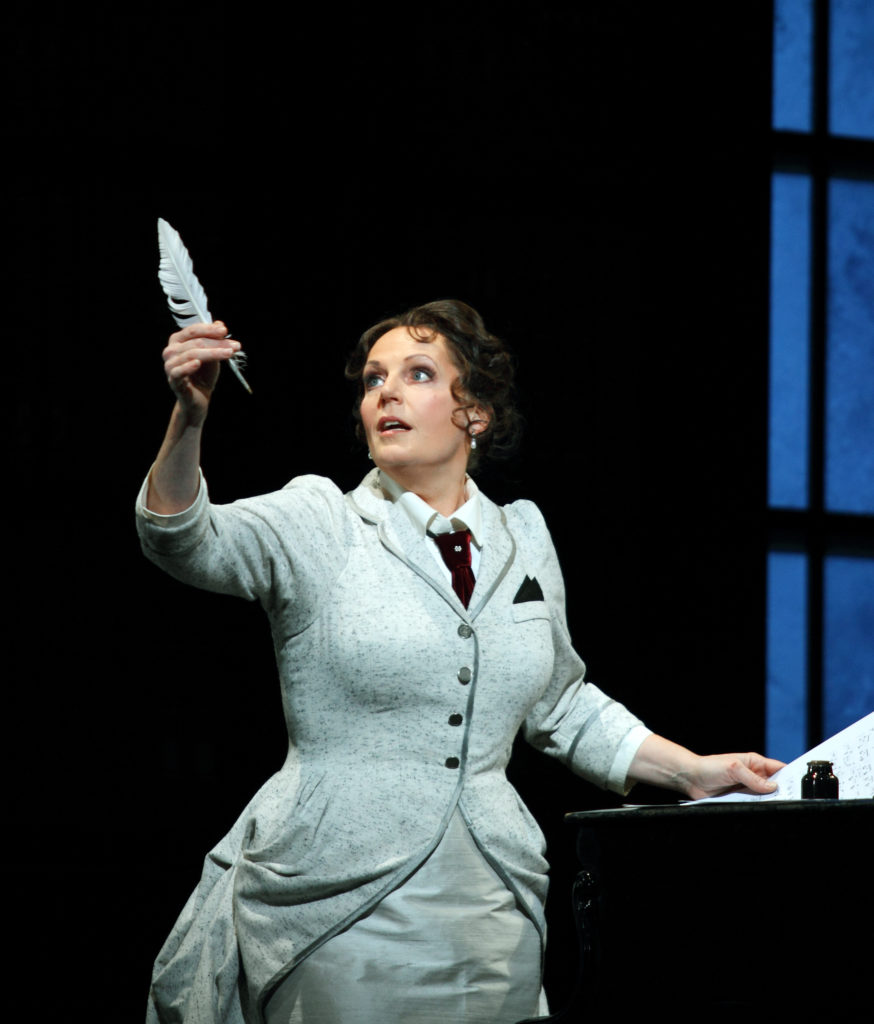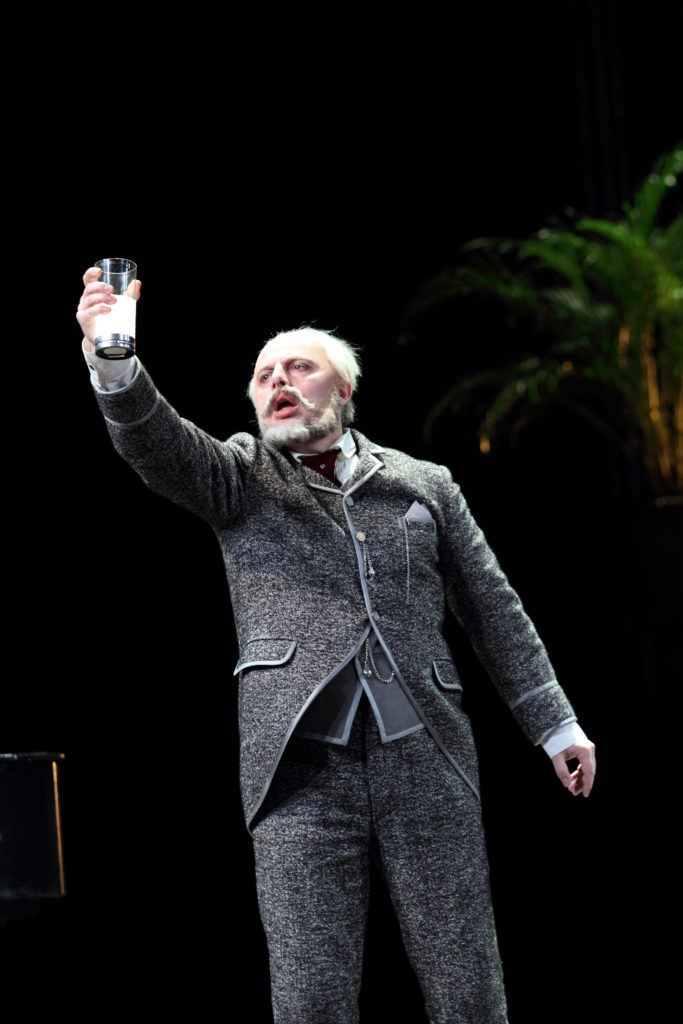
Eva-Maria Westbroek as Liza, photo by Catherine Ashmore
When the Fun Stops, Stop
The Queen of Spades, opera in three acts, music by Pyotr Il’yich Tchaikovsky, libretto by Modest and Pyotr Il’yich Tchaikovsky, after Pushkin’s novella Pikovaya Dama, conducted by Antonio Pappano, directed by Stefan Herheim, Royal Opera, Sunday 13th January 2019, reviewed by LESLIE JONES
The Queen of Spades pays homage to Mozart, who as dramaturge Alexander Meier-Dörzenbach reminds us, was Tchaikovsky’s favourite composer (“Yearning Hearts in a Bird Cage”, Official Programme). There are several direct quotations from Mozart’s oeuvre in the opera. Moreover, Tchaikovsky once confided to his patroness Madame von Meck that “…as a child of my century, inwardly confused and morally frail, I am drawn to him [Mozart] for his healthy lust for life and on account of the purity of a nature that is not poisoned by brooding: he comforts and calms me”.
As for brooding, there is more than enough in Modest and Pyotr Il’yich’s libretto, notably from Gherman, played by tenor Alexandrs Antonenko, who tells us that “…all around is happiness, But not in my stricken heart”. And also from Liza, “…weary and worn out with suffering!” Like Tchaikovsky, Liza was evidently not cut out for marriage. Indeed, both characters are arguably projections of the composer himself. For according to Freud, compulsive gambling is a form of self-punishment, a “repetition of the compulsion to masturbate” (Sigmund Freud, “Dostoyevsky and Parricide“, 1928).
From the outset, there are pointed references to the composer’s homosexuality and his alleged suicide, which is re-enacted on the stage. Director Stefan Herheim’s production, first seen at Dutch National Opera in 2016 and receiving here its UK premier, “places Tchaikovsky himself at the heart of the action, imagining the opera into life as his story…” (Royal Opera, performance notes). But there’s the rub. Vladimir Stoyanov has to double up as Tchaikovsky and Prince Yeletsky, a somewhat thankless task. The former role entails endless air conducting, sometimes with a quill, and of taking down musical notation, ad nauseam. Herheim’s production, we are told, “asks searching questions about the nature of creativity” (Royal Opera, performance notes).
To avoid confusion, when Stoyanov is Tchaikovsky, he wears a nineteenth century suit but when Yeletsky, he is bewigged and bedecked in the costume of the last years of the reign of Catherine II. To be fair to the Bulgarian baritone, his rendition of Yeletsky’s aria, “Ja vas lyublyu”, Act II, scene i, which finds him tormented by the remoteness of Liza, received warm applause. Anna Goryachova as Paulina also gave a standout performance, notably in the song “I too once lived in happy Arcady…” etc. And she can dance. The Dutch soprano Eva-Maria Westbroek, as Liza, is a technically gifted and powerful singer but at times she lacked light and shade.
The Queen of Spades is beautifully orchestrated and replete with moving arias and grand choruses. Maestro Pappano clearly loves the score and elicited a spirited performance from the orchestra. As a visual spectacle, this production is arresting, with brilliant sets and sumptuous costumes (including fancy dress). And there are other crowd-pleasing elements, including a masked ball and a scene in a gambling house, plus some energetic ensemble work, as in Act I, scene i, set in the Summer-Garden at St Petersburg, with nannies, nursery-maids and governesses. But there remains a major problem, to wit, the insensate insertion of the character of Tchaikovsky into the heart of the drama. If it ain’t broke, why fix it?

Vladimir Stoyanov as Tchaikovsky, photo by Catherine Ashmore











… and let us not forget the remarkable return to the role of The Countess of Felicity Palmer, who astonished us with the quiet intimacy of her French song in Act II back in 1992 at Glyndebourne: over a quarter of a century later she can still exert the same magic at The Royal Opera. Will we ever hear her do this live again? I doubt it. But it’s worth going to this production for her alone, even if it is to say farewell.